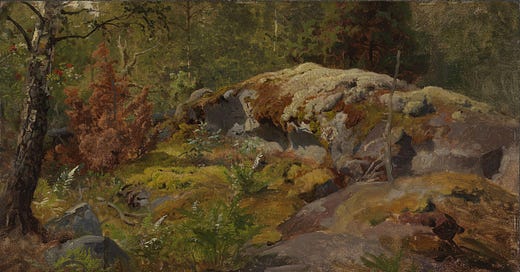Let me ask you a question: when did the first unnatural thing happen? You’ve probably heard your mom, or slightly unhinged uncle, mention that euthanasia or homosexuality are unnatural, implying that that makes them wrong (unless they do it in their own bedroom, where my chaste eyes are spared). Even more horrifically, you will often hear people justify buying animal products on the basis that it’s only natural to lock pigs in cages where they can’t mo- I mean, to eat meat (have you not looked at the shape of our teeth??).
Luckily, as our rational overlords from yourlogicalfallacyis.com have graciously pointed out to us mere mortals, the appeal to nature is a LOGICAL FALLACY(!). This means that you will have your fedora-privileges revoked and be banned from r/atheism for life if we ever catch you using it. What is worse, it means that arguments that use an appeal to nature are STUPID! So next time uncle Johnny starts going on one of his rants again, you can point out that he, um, actually just committed a logical fallacy and has therefore already lost the argument.
Still, even if what’s natural shouldn’t inform our ethical thinking, we can surely meaningfully say that there are actually some things that are natural and some that are not? Not so fast! Appeals to nature are not just fallacious, but also appeals to nothing—I don’t think the term “natural” picks out anything substantive.
So what might we think “natural” means? Mill has a pretty influential proposal here (from his three essays on religion): “what takes place without the agency, or without the voluntary and intentional agency, of man.” Basically, unnatural things are those that are influenced by human agency, and natural things are the rest. This pretty comfortably captures what we’re getting at with the concept of nature: the natural are things like trees in a forest and animals eating other animals, while the unnatural are things like cities, cars, and whatever depraved shit is going on here (I’m sorry).
Sadly there are several obvious problems with this. Firstly, this would mean that everything is unnatural—or at least everything on the surface of earth. What parts of the earth are wholly unaffected by the actions of humans? The answer: none. An easy way to see this is just to consider greenhouse gas emissions. Plausibly there’s nothing on earth that has not been affected even slightly by changes in climate. On top of that, being really pedantic, if you walk up a flight of spiral stairs, you will have ever so slightly changed how you gravitationally affect everything else with a mass in the universe.
We can escape this problem by making naturalness a spectrum: things are more or less natural as a function of how much (and perhaps how distantly in the past) they have been influenced by human agency. Thus this blog post is a lot less natural than some bird out in the woods, since this blog has been fully created by my intentional action, while the bird is pretty unaffected. Apart from the fact that this relation will be incredibly hard to specify, this just leads us to the second problem, which is captured by the first question of this post: When did the first increase in unnaturalness happen? It’s super vague what it means for something to be a human, but to have our concept, we need some clear account. If we just think about evolutionary history, it will be clear that any line we draw is sorta arbitrary.
I do think there might be one non-arbitrary definition: the first humans were the first group of creatures that could only breed with each other, and whose only descendants are the group of creatures we currently call humans. This might be sufficiently sharp and unambiguous. The problem here is just that we’re now no longer capturing what we want to capture. Imagine that this group actually just ended up devolving back to creatures of average intelligence, compared to the general population of animals on earth. In that case we wouldn’t want to call their actions unnatural. Likewise, if super intelligent aliens built spaceships, we would hardly want to call those natural occurrences, just because their creators didn’t have the right evolutionary history.
It’s then time to discard the Millian ladder we just climbed. What we should really focus our definition on is the intentional and voluntary action of intelligent beings, as that seems to be what is actually driving our intuitions. What I think is the best attempt at a definition of natural might then be something like this: something is unnatural to the extent that it has been influenced by the intentional and voluntary action of intelligent beings (and perhaps more unnatural, the more intelligent those beings are). This at least captures the case of aliens. More importantly, the distinction now seems to get at something real. Singling out humans is obviously (to me at least) just completely artificial, but intelligence more generally might have a shot at being relevantly non-arbitrary.
Still, defining natural in this way is really just an admission of defeat. Under this definition spider webs, birds nests, mole hills, etc. would all be very unnatural. In fact, more than 70% of tropical trees would be quite unnatural. Overall, there’s just no longer anything exceptionally special and unnatural about human actions and artifacts; the terrace deck your parents built is about as natural as a bird’s nest, and a dog humping some random object is about as unnatural as someone jerking off to tentacle yaoi hentai. My best attempt at making a meaningful distinction that’s at least a worthwhile effort at carving the world at its joints (though I’m skeptical there are such joints) and getting at something not hopelessly arbitrary, then just ends up collapsing the distinction, and making the things we usually consider unnatural pretty standard parts of the “natural” world.
The problem seems to be that our distinction of what’s natural and what’s unnatural implicitly assumes some sort of worldview à la Aquinas, where humans are in a totally separate category from the rest of nature, having some fundamental qualitative difference. But that’s just not right; rather we just happened to put a lot of points into our intelligence stat, but that doesn’t amount to our activities warranting the term “unnatural” as opposed to the activities of other agents.
For good measure, let’s just touch on the normative question as well (though if you don’t trust my arguments here, remember that you can accept my conclusion from the expert testimony of yourlogicalfallacyis.com). This will probably be the least controversial part. I don’t think many people, upon reflection, actually think that these sorts of appeals are relevant to ethics (except when it comes to eating animal products for some reason).
Suppose that I am given a pill that might cure my illness. Should I care whether a human intentionally created it, or whether a gust of wind accidentally put all the right ingredients together? If it’s the same pill then obviously not! Is it worse if greenhouse gas emissions are created by humans intentionally driving around, than if they’re created by wild animals unintentionally farting? Again, obviously not! So it’s just pretty obvious to me that the normative character of something doesn’t have much to do with whether or not it’s natural.
It’s also worth noting that homosexuality isn’t anymore unnatural than heterosexuality on the definition developed here. After all, both homosexuals and heterosexuals are presumably equally intentional and equally intelligent when deciding what to do with their genitalia, and so there’s nothing specifically unnatural about the former. To get it to be unnatural, you would presumably need a third sense of “natural,” namely one tied to teleology. (Which, I mean, checks out, considering the views of many Thomists.)
I haven’t touched on this teleological idea very much, since I don’t take it particularly seriously, but I’ll shortly discuss it here at the end—it’s also probably what people actually have in mind when talking about what’s natural in normative contexts. Let’s just grant that if teleology exists, then things following their purpose is what “natural” means. The problem is that there isn’t teleology. It might be tempting to think that evolution provides it. But this would be anthropomorphizing the process. As I explain in my post on evolution, it trivially occurs when there’s reproduction with inheritance, (random) variation, and selective pressures. The process by which it happens doesn’t require any sorts of purpose, goals, or intentions—it simply happens wholly mechanistically. To get to teleology from evolution, you need to assume some (in my view) unwarranted additional hypotheses.
And apart from evolution, it seems that teleology would only come from purpose imposed by creatures, but then we’re basically just back at the definition developed throughout this post, and that clearly doesn’t really tell us much about normativity, as we saw. One last option might be theism, but under theism (at least perfect-being theism) the only teleology that would exist would presumably be teleology aimed at achieving the good. In that case it’s simply trivial and uninformative to say that what’s natural is what’s good, and we should just concern ourselves with standard ethical theorizing, rather than look for teleology.
Even if there is teleology in the colloquial natural sense, though, it’s still not clear to me that it would have normative weight. Again, whether or not it’s the purpose of penicillin to fight infections doesn’t have any effect on whether it’s right/good to use penicillin for this purpose. Likewise, whether or not it’s part of the natural purpose of fish to have million of offspring, most of which will die horribly and quickly, is not really relevant for whether or not it’s bad that this is happening.
I will say that in some areas, appealing to what’s natural in the colloquial sense might actually make sense. For example when it comes to food it might very well make sense to generally prefer what’s natural in the sense of resembling what we evolved to eat. The reason for this obviously isn’t because there’s anything intrinsically bad or unhealthy about unnatural food, but simply because our bodies evolved to eat that food, and so probably function better and live longer on the stuff. But if we can artificially make food that achieves this better, then that’s the preferable option. The same can be said for many things about the health of our bodies and minds, I suspect. This still lets the general point stand, that even if we can make sense of what it means for something to be natural, there is no necessary connection between that and what’s good/right.






As a Utilitarian naturalist I approve of this post. I have often found some of the same difficulties with how people use the word natural. Big up!
I think one way of using "natural" that you might think works better is to consider it as a relative term - in particular, something can be natural or unnatural relative to a particular kind of agency. For example, it seems perfectly natural (no pun intended) to say that a beaver building a dam alters the natural course of a river's. Here, "natural" is relative to the beaver's agency: The natural course is the course the river would take without the beaver messing with it. But when we talk about human agency, we consider the beaver's dam to be natural: A human destroying the dam would be changing the natural environment of the river.
This can also make sense of why theists still call things "natural" even though on their view, everything is the result of God's agency and thus unnatural. "Nature" is unnatural with respect to God, but natural with respect to humans.